Con workshop - writing characters outside your culture
 This year's Rocky Mountain Fiction Writers' Colorado Gold Conference will be held Sept. 5-7, in Westminster [Denver]. Among other panels and workshops, author Mario Acevedo and I will be leading one [Sunday, 9:00am] called "Deep-six the Stereotypes: Writing Characters from Another Culture."
This year's Rocky Mountain Fiction Writers' Colorado Gold Conference will be held Sept. 5-7, in Westminster [Denver]. Among other panels and workshops, author Mario Acevedo and I will be leading one [Sunday, 9:00am] called "Deep-six the Stereotypes: Writing Characters from Another Culture."
Its description: "How can writers diversify their fiction with vibrant characters from a different culture or background so their writing attracts 21st Century readers? Insights into what hooks / turns off agents when authors write outside their cultural experience."
We envision our audience largely being Anglos wanting to hear about writing non-Anglo characters. Not that I'm an expert, but why is this Chicano author willing to help Anglo writers write about Chicano, Latino, etc. characters? (I haven't asked Mario the same.) There are other questions that could be asked.
Do Chicano authors have a "responsibility" to help Anglo writers--already published more than we are--so that they can succeed even more? Can Anglo writers do a decent portrayal, from their non-PoC perspective and worldview? Questions could go on and on.
 They remind me of two hours I spent in the Taos Plaza last month, during the Fiestas. I'd been there before, seen the sites, the festivities, the shops and artwork. That part of our--wife Carmen also went--trip was el mismo. The two hours were totally new.
They remind me of two hours I spent in the Taos Plaza last month, during the Fiestas. I'd been there before, seen the sites, the festivities, the shops and artwork. That part of our--wife Carmen also went--trip was el mismo. The two hours were totally new.I had a first edition of Milagro Beanfield War I'd wanted autographed and author John Nichols did that earlier this year. We exchanged surface-mail letters, I sent him my novel, he invited me down and I was to meet him in a café near the Moby Dickens Bookshop.
The Nichols website states, "As of July, I’m 73 years old, my heart is locked in permanent atrial fibrillation, congestive heart failure. I'm a walking time bomb ready to have a stroke." So, initially my intention was to do a La Bloga interview of the man who'd authored one of my favorite books about Chicanos, written by an Anglo. Maybe even his last interview.
When I was in the graphic/ad business, my company had produced the artwork for the movie's Denver premier, so besides a reader-author connection, I had remote connection to Nichols' work. The movie starred Rubén Blades, Sonia Braga, Melanie Griffith, Christopher Walken, et al; director Robert Redford; producers Moctesuma Esparza and Redford; Nichols did the screenplay.
 If you've never seen the movie, you should. Not only for its humor and its background on New Mexican land/water struggles, but because it's good. For it's time, it was great. A major motion picture laced with Anglo/Latino talent.
If you've never seen the movie, you should. Not only for its humor and its background on New Mexican land/water struggles, but because it's good. For it's time, it was great. A major motion picture laced with Anglo/Latino talent.
After attempting to come up with insightful interview questions to ask Nichols, at some point I gave up. It felt artificial, irrelevant and not what I wanted to do. [Never even took a selfie of us.] I decided to simply meet the man who wrote the novel. Chat. Discuss, exchange stories, maybe laugh a little. Eat and drink (not that Nichols was/is in a condition to down traguitos with me).
At the appointed hour, I expected an old guy with a cane maybe made out of an agave stalk, hobbling or leaping like in the movie poster. The cane was simple and plastic. The man didn't jump around much. We ordered a bite, I'd have a couple of Negras, Nichols, some non-alcoholic drinks. And we began.
Another writer asked me, "What did you learn?" He meant, what great writing knowledge did I take away from the talk. I don't know that I have anything literary to answer to that and am not sure that I should.
 In the two hours, I saw/experienced/shared in small ways several things. That Nichols, like on his website, holds family high on his list of achievements and experiences. That he holds Nature and being alone in Nature--something I've written about--high on his list of how we should spend our time on the planet, not only near the end of it.
In the two hours, I saw/experienced/shared in small ways several things. That Nichols, like on his website, holds family high on his list of achievements and experiences. That he holds Nature and being alone in Nature--something I've written about--high on his list of how we should spend our time on the planet, not only near the end of it.
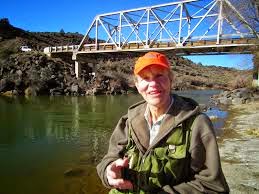 Then there was his smile. And eyes. Nothing that you'd expect from a casi-muerto. What you'd expect from a twenty-year-old. What you'd expect from a kid starting out in life with crazy expectations and hopes and decades in front of him to accomplish anything he wanted.
Then there was his smile. And eyes. Nothing that you'd expect from a casi-muerto. What you'd expect from a twenty-year-old. What you'd expect from a kid starting out in life with crazy expectations and hopes and decades in front of him to accomplish anything he wanted.
I didn't expect his Spanish accent to be so gringoly obvious. My grammar is unschooled; his is in nascent stages of Span. 201, to be kind. But he was unashamed about using it. He didn't blush whenever his fluency fell or vocab was a bit off; he just talked on like a mexicano drinking unas, outside a Texas beer joint. I got over noticing it and just went with our exchange. Of course, I wonder what he heard in my Spanish that might've made him cringe.
If Nichols and I live long enough, perhaps there will be an interview, not necessarily his, or my, last. I don't know that that's that important. [yeah, 3 "that’s" and maybe English isn't my 1st language]
How does my short time with Nichols relate to our upcoming workshop? Mario and I could hope that out of it came some new awareness that in the future could produce the kind of gringos' share of the work that went into the Milagro movie. [No, I don't know what pinche petho developed during its production.] Or encourage a little of the multi-national, multi-talented camaraderie that this country direly needs, not only literarily. If Mario and I reach some in the audience who are/can be such gente, then we'll have done, no milagro, but at least a little progress in lifelike lit.
It took me two hours to shed the nervousness of being one-on-one with a great gringo writer. Should the two of us endure until another meet, I'll have reached the stage of bouncing some of my crazy ideas off him, especially, about death. And what it's probably not. Or story ideas. Or poor jokes. Or introduce my dog to him. Yeah, maybe a little interviewing, por pendejo.
More vampiros
"If you're a fan of Felix Gomez, you know he's got a lot hanging out there. For one, the most bodacious vampiress of all time, his buddy Carmen Arellano, was kidnapped by aliens and she's being held prisoner in deep space. And Phaedra, the ruthless bloodsucking ingenue--now with extra-superpowers--is making good on her threat to destroy the Araneum and take over the undead underworld.
"Felix is not alone in his quest to save Carmen and stop Phaedra. That red-headed whirlwind with a gun, Jolie, has got his back. Also appearing is everyone's favorite down-and-out trickster sage, Coyote, and he's brought along his mom...la Malinche...aka La Llorona! Here it comes, a big, hairy story bristling with action, intergalactic adventure, skin-walkers, Hopi magic...all told in tumescent PervoVision. Exactly what you'd expect from Felix Gomez. [La Bloga note: and what you'd expect from Mario]
Es todo, hoy,
RudyG, aka Chicano spec lit author, Rudy Ch. Garcia, Taos tourist and Nichols fan
Wednesday this week, I joined other Latino writers for the workshop sponsored by Science Fiction and Technoculture Studies Program at Univ. of California, Riverside, organized and hosted by Sherryl Vint, Professor of Science Fiction Media Studies. Appended are the 2. La Bloga Spec Lit Directory, and 3. links I promised to post. [photos by Michael Sedano]
 |
| Prof. Sherryl Vint |
1. The workshops were great, a great hostess and audience for the event. Being there with Mario Acevedo, Ernesto Hogan, Rosaura Sanchez, Beatríce Pita, Jesús Treviño and La Bloga's Michael Sedano was uplifting. What immediately follows are my notes, only some of which I shared there:
Latinos have had to follow Anglo-Americans; they kept invading our lands, our Aztlán and our islands. That's their history and why we had to adopt and follow the ladder of the American Dream, even when forced to assume the role of Boogie Man. As U.S. society "allowed" Latinos to enter, we worked our way up, saving money, buying homes, sending kids to college, becoming professionals, established or famous. Our relatives the immigrants do the same, getting a credit card, a home, buying a big black truck, etc.
As our gente's educational level rose and Latino spec writers emerged. We weren't uneducated before; the problem was the literary establishment's English-only prejudice about accepting Spanish. Getting past the East Coast/White Boy publishing curtain, latinos' SF works were/are being published, winning awards as best sellers, even making their way into movies; no Nobel Prize winners, yet. In the SF Hugo Awards for Best Professional Artist, Daniel Dos Santos and John Picacio were nominated this year and last year, with Picacio taking it in 2013.
However, latinos haven't always followed the exact path of Anglo writers, and this speaks to why we may not need to and maybe shouldn't follow in their footsteps.
Anglo sci-fi lit arose in the 1930s with John W. Campbell, Isaac Asimov, Damon Knight, Frederik Pohl, Robert A. Heinlein, Arthur C. Clarke, Ray Bradbury. They called it the Golden Age of science fiction--golden as in blond-haired--with stories centered on scientific achievement and progress, like at the first World Science Fiction Convention held in NY in 1939.
 |
| 5 of the 6 Latin@ authors |
My father grew up in those times and with that technological awareness; he read SF pulps every day. He never became a Rudy Rucker mathematician or David Brin scientist and never wrote SF. He rose as he could, up to supervisor of military jet maintenance, a prestigious position for a tejano in the 1950s. But, as a Mexican, he was tracked into Tech High School, otherwise he might have graduated from college and written SF, and I could've pimped off his fame.
Decades later, the "forward-thinking" SF establishment opened its white-man's club to women and then, people of color. The rear, kitchen door was always open, but now the front door is ajar. Now that Latinos have a foot in the door so they can't close it on us, what directions will we take or even create?
In a recent interview, YA novelist Matt de la Peña asked, "Where's the African-American Harry Potter or the Mexican Katniss?" Elsewhere, author Armando Rendón asked where are the "guidelines appropriate to writing aimed at Latino children, created by Latino literati who understand their needs?" And a member of our better, mestizo half, Sherman Alexie, said, "I want to see more brown kids as characters!" Such statements made me begin to wonder if there are different paths Latino SF could take.
We know Latino youth need Latino-authored stories about Latino heroes and heroines. If you need backup to convince your principal, school board or politicians, just check the recent and ongoing #WeNeedDiverseBooks campaign.
Focusing on mainstream, YA sci-fi (and fantasy), there are five, frequent themes: Good vs Evil, Love Triangles, Paranormal Beings, Dystopian futures and the Superhero. What perspectives do Latinos bring to these themes? I'll skip the struggle of good vs. evil that could be the topic of a whole conference. I'll also skip Twilight's love triangles of two hunky boys competing for one hot girl because I was never the former nor did I get the latter.
 |
| Ernesto Hogan & Mario Acevedo |
#3. Paranormal beings, like aliens, vampires, werewolves, mermaids, zombies, shape-shifters, fairies. Latinos bring indigenous Taíno zemí spirits and the huracán god, and La Llorona and El Cucui from Mexican heritage. But we didn't stop there, even as Anglo SF writers appropriated our monstruos. Mario Acevedo gave us a Chicano vet bitten by an Iraqi vampire. Ernesto Hogan gave us sentient, gaseous life-forms on Jupiter. Magical realism regularly emerges from the latino heritages.
Theme #4 in YA SF- Dystopia, which includes futuristic, dismal settings where teens battle tremendous odds, and sometimes, adults, in order to save humanity. What I'd like to see from Latinos is more about ourdystopias. A future where there's no electricity, no lights or power, no gas for cars or food on store shelves? Hey, Latinos (and all the poor) have been living that dystopia before Anglo SF writers even knew how to misspell the word.
What about portraying the barrios, when mamá can't pay the utilities because she only has a lowly typist job. Zombies stomping all around in the future? Try making it to the baño in the middle of the night when the rats are playing all over the sink, without crunching the cucarachas that're running all over the floors! You want hunger games? How 'bout your familia doesn't qualify for food stamps, and the only things in the cupboard is cans of lima beans and garbanzos. I don't think Latinos have even begun to exhaust the contemporarydystopias we could write for mainstream U.S. readers.
I believe theme #5 is the biggest challenge--and opportunity--for Latino SF writers. The lone hero on a quest to save the world or to defeat the forces of evil.
 |
| Only a part of the Riverside audience |
To take just one old white-guy SF, R.Heinlein's Stranger in a Strange Land, the character Michael Smith was raised by Martians to have psychic powers and superior intelligence and battles evil, church forces and starts a new religion that will remake and save human, gringo society. In another of my favorite readings, The Foundation Trilogy, Hari Seldon develops the statistical math to save the intergalactic empire but he's outflanked a human mutant named The Mule, who's even more gifted and powerful.
Catniss in Hunger Games (2008) or Frodo in Lord of the Rings (mid 50s) are slightly different. These heroes need allies because they are not superhuman enough to accomplish their deeds, alone. They need help, they need to gain or win friends for that. They're like today's kids. Actually, they're also like my 30-year-old kids when they were growing up with friends of other colors--white, Asian and multi-ethnic.
So what can Latinos bring to this theme? In Afro-6, maybe the first Chicano SF novel, blacks form a military alliance with Latinos of NYC, the Boricuas. Think on that for a second. The first latino SF book. Wasn't just about Latinos. It was not about a Latino Robin sidekick for an ethnic Batman vato--it was about two ethnic groups, communities uniting, about black and brown solidarity.
In another examples, Jesus Treviño's screenwork includes Ed Olmos in Battlestar Galactica--as the admiral, not a drug lord. Treviño also wrote for the multinational cast of Star Trek.
Afro-6didn't come out of the civil rights struggles; it pre-dated them. However, ethnic mixing is not surprising for NYC. Remember, the book Afro-6 came out 50 years ago. Realize how many decades it took the old white-guy SF writers to have characters, peoples cross that line. Some still never leave their fictionally colorless Gringolandia where many characters are still college-educated scientists. So, what different routes have Latinos taken?
As in all Latino lit, our SF includes the successful, middle-class Hispanics. But a lot of it doesn't. Looking at today's panelists, The Techosand Migros in Lunar Braceros were the homeless and unemployed; Mario Acevedo's Felix Gomez character and my protagonist didn't graduate from college; Ernesto Hogan's character Pablo Cortez, a self-educated dropout, probably spent most of high school in detention or suspended. And Jesus Treviño's characters in The Fabulous Sinkhole live in a poor, border town colonia. Qué. Curioso. Somos. How different the Latino SF protagonists--no?
 |
| Jesús Treviño on media panel |
The indio Sherman Alexie also said, "With YA, you can make real, significant, social change." In general, the same is possible with sci-fi and spec lit. Latino SF is politically and socially more progressive because of our shared histories dominated by U.S. Manifest Destiny, oppression and exclusion. Again, looking to the panelists' novels, this is developed in Lunar Braceros to a great degree. Cortez on Jupiter is about a Chicano artist dealing with an unbelieving, white establishment. The Chicano protagonist of Nymphos of Rocky Flats doesn't just get screwed over like so many latino Iraqi War vets, he returns home vampire-bitten! And my hero in The Closet of Discarded Dreams has one goal--to get out of a mad, consumer-goods-worshipping world where americanos' dreams are his nightmares.
But speaking about the lone hero in SF, in Afro-6, Lunar Braceros and in my novel, there's something else--united action, popular uprisings, mass movements like those of the 60s and 70s. The last Hunger Games novel has rebellion and urban guerilla warfare and the defeating of the establishment, much like Afro-6. But that's still an old, white-guy SF story. It's not new.
I'll pimp my novel to get to a new theme different from the lone hero. Not to do a spoiler, in the book, the hero is only part of a mass movement. That movement is spontaneously organized, works by democratic consensus and volunteer brigades. They don't have Twitter or Facebook, but they use a crowd-sourced Grapevine to organize themselves. The multinational population divides up based on their skills and abilities. Their efforts succeed in helping stall the forces of evil long enough for others to realize how my hero plugs into their struggle. If the book had been published when I finished it, I could have taken credit for predicting the Occupy Movement.
I don't think Latino SF writers have tapped into our roots of communal action enough yet and there's reasons we should. From our indio roots, come many traditions of councils of elders, some matrilineal, where it wasn't just one, big warrior who saved his people. Also, all latinidad have familial, even clan, traditions where mass action helps everyone survive (not to romanticize us as perfect). From the annual communal clearings of acequías in the Southwest to almost magical way families contribute to a tamalada, we have historically proven methods of accomplishing almost anything. If you've never seen one, try describing the dynamics of an Easter celebration at abuela's house.
One great, black author who went beyond the lone hero theme was Octavia Butler in her Parable of the Sower series where the Oya heroine begins a religion, a movement to "shape God and the universe." Now there's something mass(ive)--a peaceful, though not passive, movement.
Some Latino SF writers will explore developing our own themes to shape the future, something going beyond the lone hero, however much the Hero's Quest must be used as a narrative approach. I don't know all of what might come out of that. I do know the Afro-6 revolution isn't necessarily it, but not because I'm a pacifist. My first published novel began my thinking that I further developed in a just completed YA manuscript, Hearts bruised, dreams mended.
 |
| UC-Riverside grad students on panel |
But we don't need a new jefe, caudillo, chingón Supermacho imposing his will, followed around by his bodyguards, having his pick of the women, and leading and saving his people. A female one, either. We need Latino heroes and heroines for the 21st Century.
Dystopia, economic collapse, unaffordable college, homelessness, Global Warming catastrophes, even the heightened racism against immigrant and "legal" Latinos--this isn't some futuristic SF, it's what many young people face now and for their foreseeable futures. In our small way, Latino SF writers can give allchildren something--new themes, methods, paths. Hope. Esperanza. Poder. Fuerza. We can't follow in the footsteps of the East Coast, Anglo-male dominated publishing industry, anymore. We need our own Latinonautica, we need to show others a multinational effort for change, what Ernesto Hogan terms, "an international, Latino New Wave in speculative fiction."
2. La Bloga Spec Lit Directory
[Speculative literature = science fiction, fantasy, horror, magic realism, a lo menos]
Below is the latest list of Latino spec novelists, only their first books, publishers, and websites in chronological order. I welcome contributions to making this more complete and current and will periodically update.
[Self-described: Chicano, Cubano, Hispanic, Mexicano, Mexican American, Puerto Rican, Sudamericano, American y más, expanded as needed. ?? = undetermined by us. Publisher in parens.]
1922Campos de Fuego - breve narración de una expedición a la región volcánia de "El Pinacate", Sonora Gumersindo Esquer [M]. "A Mexican Jules Verne." This came out after the Border got put up, but we could claim Esquer as a precursor.
1969Afro-6, Hank Lopez. [MA?] (Dell Publishing) According to NYTimesobit, Lopez was "born in Denver of parents who had emigrated from Mexico." A futuristic thriller about a Black, armed take-over of Manhattan. [Copyright includes Harry Baron, not listed as co-author.]
1972 Bless Me, Última, Rudolfo A. Anaya (Ch] (Quinto Sol) http://www.neabigread.org/books/blessmeultima/readers-guide/about-the-author/
1976 Victuum,Isabella Rios. (Diana-Etna Inc.) Where psychic development epitomizes with the encounter of an outer-planetary being. O.O.P. 1978 The Road To Tamazunchale, Ron Arias (Ch) (Bilingual Press) http://www.amazon.com/Tamazunchale-Clasicos-Chicanos-Chicano-Classics/dp/0916950700
1984 The Rain God: A Desert Tale, Arturo Islas [Ch] (Alexandrian Press) http://business.highbeam.com/4352/article-1G1-18616692/historical-imagination-arturo-islas-rain-god-and-migrant"
1984 The War of Powers, Victor Milán [??] (Hodder & Stoughton Ltd.) http://www.victormilan.com
1990Cortez on Jupiter, Ernest Hogan[Ch] (Tor Books) A Ben Bova Presentspublication. "Protagonist Pablo Cortez uses freefall grafitti art--splatterpainting--to communicate with Jupiter's gaseous forms of life." http://www.mondoernesto.com
1992 Mrs. Vargas and the Dead Naturalist, Kathleen Alcalá [Ch] (Calyx Books)
1993 Like Water for Chocolate, Laura Esquivel [Ch] (Random House Black Swan)
1993 Afterage, Yvonne Navarro [A] (Overlook Connection Press) http://www.yvonnenavarro.com/ Dark fantasy & horror.
1995The Fabulous Sinkhole, Jesus Treviño [Ch] (Arte Público Press) "Stories into magic realism: spunky teen Yoli Mendez performs quadratic equations in her head." Film/TV Director/Writer of Prison Break, Resurrection Blvd. Star Trek Voyager, Babylon Five, Deep Space Nine. http://chuytrevino.com/
2000 Clickers, J.F. Gonzalez [??] (DarkTales Publications) Horror. http://jfgonzalez.com/
2000Places left unfinished at the time of creation, John Phillip Santos [Ch] (Penguin Books) "A girl sees a dying soul leave its body; dream fragments, family remembrances and Chicano mythology reach back into time and place; a rich, magical view of Mexican-American culture." http://provost.utsa.edu/home/Faculty_Profile/Santos.asp
2000 Soulsaver, James Stevens-Arce [PR] (Houghton Mifflin Harcourt) www.stevens-arce.com
2001 The New World Border, Guillermo Gomez-Peña [??] (City Lights Publishers) News reports from a borderless future where whites are a minority and the language is Spanglish.
2003 Matters of the Blood, Maria Lima (Cu-Am?] (Juno Books) http://www.marialima.com/
2004 Unspeakable Vitrine, Victoria Elisabeth Garcia [??] (Claw Foot Bath Dog Press) Chapbook collection of short magic realist fiction
2004 Devil Talk:Stories, Daniel A. Olivas [Ch] (Bilingual Press) These twenty-six stories bring us to a place once inhabited by Rod Serling . . . only the accents have changed; Latino fiction at its edgy, fantastical best. http://www.danielolivas.com
2004 Creepy Creatures and Other Cucuys, Xavier Garza (Piñata Books)
2005The Skyscraper that Flew, Jesus Treviño (Arte Público Press). An enormous crystal skyscraper mysteriously appears in the Arroyo Grande's baseball field. Then the stories begin. http://chuytrevino.com/
2006 The Nymphos of Rocky Flats, Mario Acevedo [Ch] (Rayo Harper Collins) http://marioacevedo.com
2006Gil's All Fright Diner, A. Lee Martinez [A] (Tor) Born in El Paso, he has other books, but may not consider his books or himself anything latino. http://www.aleemartinez.com/
2007 Firebird, R. Garcia y Robertson [A] (Tor)
2007 Abecedarium, Carlos Hernandez [??] [w/D. Schneiderman] (Chiasmus Press) 2007 Moon Fever, Caridad Piñeiro [Cuban American] (Pocket Books) http://www.caridad.com/bio/" Paranormal romance.
2008 Happy Hour at Casa Dracula, Marta Acosta [L] (Pocket Star) http://www.martaacosta.com
2008 The King's Gold: An Old World Novel of Adventure, Yxta Maya Murray (Harper Paperbacks)
2009Lunar Braceros, Rosaura Sanchez, Beatrice Pita & Mario A. Chacon. (Calaca Press)
2012 The Witch Narratives, Belinda Vasquez Garcia, [??} (CreateSpace Independent Publishing Platform) http://www.belindavasquezgarcia.com/ The little-known world of Southwestern witchcraft.
2012 The Closet of Discarded Dreams, Rudy Ch. Garcia [Ch]. (Damnation Books) A Chicano alternate-world fantasy. Honorable Mention, SF/F category, 2012-13 International Latino Book Awards. Discarded-dreams.com 2012 Spirits of the Jungle, Shirley Jones [H] & Jacquelyn Yznaga [H] (Casa de Snapdragon)
2012 Virgins & Tricksters, Rosalie Morales Kearns [PR +Dutch] (Aqueous Books) Magic and folklore pop out of everyday encounters. http://rosaliemoraleskearns.wordpress.com
2012 Joe Vampire, Steven Luna (Booktrope Editions) [??] thestevenluna.wordpress.com
2012 Summer of the Mariposas, Guadalupe Garcia McCall [Ch] (Tu Books) Pura Belpré Award winner; Andre Norton Award nominated. http://www.guadalupegarciamccall.com .
2012 Roachkiller and Other Stories, R. Narvaez [PR] (Beyond the Page Publishing) Winner of 2013 Spinetingler Award for Best Anthology/Short Story Collection and 2013 International Latino Book Award for Best eBook/Fiction.
2012 Salsa Nocturna, Daniel José Older [??] (Crossed Genres Publications) http://ghoststar.net
2012 Dancing With the Devil and Other Tales From Beyond, René Saldaña Jr. [MA] (Pinata Books) http://renesaldanajr.blogspot.com
2012 Ink, Sabrina Vourvoulias [L] (Crossed Genres Publications) http://followingthelede.blogspot.com
2013 The Miniature Wife & Other Stories, Manuel Gonzales [??] (Riverhead Books) www.facebook.com/pages/Manuel-Gonzales/110962335695879
2013 Spirits of the Jungle, Shirley Jones & Jacquelyn Yznaga [??] (Casa de Snapdragon)Kindle version, 2012.
2013 The Odd Fellows, Guillermo Luna [?] (Bold Strokes Books) http://friendshiploveandtruth.blogspot.com
2013 This Strange Way of Dying: Stories of Magic, Desire & the Fantastic, Silvia Moreno-Garcia [M] (Exile Editions) silviamoreno-garcia.com. Collection of fantasy, science fiction, horror—and time periods.
2013Infinity Ring: Curse of the Ancients, Matt de la Peña [??]. (middle-grade, Scholastic Inc.) "Sera sees the terrifying future, but can’t prevent the Cataclysm while stranded thousands of years in the past. The only hope lies with the ancient Maya, a mysterious people who claim to know a great deal about the future." http://mattdelapena.com
3. Websites relevant to the Latino SF workshop:
"Speculative fiction is at its core syncretic; this stuff doesn’t come out of nowhere. And it certainly didn’t "spring solely from the imaginations of a bunch of beardy old middle-class middle-American guys in the 1950s." from N.K. Jemisin's Continuum GoH speech last year in Australia, calling for "a Truth in Reconciliation commission, such as encouraging blind submissions, demanding diverse characters on book covers. Women and people of color have our own suggestions for change. . . . Who has the greater stake in teaching mainstream U.S. sci-fi "how to be multicultural, and in tune with the world?" Women and POC have learned from the mistakes and successes in sci-fi "to truly become the literature of the world’s imagination."
"55% of young adult books purchased in 2012 were bought by adults between 18 and 44 years old, according to Bowker Market Research.
Es todo, hoy,
RudyG aka Rudy Ch. Garcia
 Border Patrol Nation
Border Patrol Nation
Most U.S. citizens tend to think stopping undocumented workers at the border is a good thing that won't affect them. They should check out Todd Miller's new book about what militarization has done to the Land of the Free. It's entitled Border Patrol Nation: Dispatches from the Front Lines of Homeland Security and here's some facts from it.
"The U.S. borders have long been Constitution-free zones where more or less anything goes, including warrantless searches of various sorts. In the twenty-first century, however, the border itself, north as well as south, has not only been increasingly up-armored, but redefined as a 100-mile-wide strip around the country.
 "Our “borders” now cover an expanse in which nearly 200 million Americans, or two-thirds of the U.S. population, live. Included are nine of the 10 largest metropolitan areas. If you live in Florida, Maine, or Michigan, for example, no matter how far inland you may be, you are “on the border.” You can be stopped, interrogated, and searched “on an everyday basis with absolutely no suspicion of wrongdoing.”
"Our “borders” now cover an expanse in which nearly 200 million Americans, or two-thirds of the U.S. population, live. Included are nine of the 10 largest metropolitan areas. If you live in Florida, Maine, or Michigan, for example, no matter how far inland you may be, you are “on the border.” You can be stopped, interrogated, and searched “on an everyday basis with absolutely no suspicion of wrongdoing.”
Omnidawn Fabulist Fiction Chapbook Contest
 I own a copy of a previous winner, In A Town Called Mundomuerto, and love the magical realist writing of author Randall Silvis. Anyway, the submission period for this contest doesn't begin until August, but this posting will give you speculative fiction writers time to get manuscripts prepared. There is a reading fee.
I own a copy of a previous winner, In A Town Called Mundomuerto, and love the magical realist writing of author Randall Silvis. Anyway, the submission period for this contest doesn't begin until August, but this posting will give you speculative fiction writers time to get manuscripts prepared. There is a reading fee.
From the Omnidawnwebsite:
The winner of the annual Omnidawn Fabulist Fiction Chapbook Competition receives a $1,000 prize, publication of their chapbook with full-color cover, 100 copies, and display advertising and publicity.Fabulist Fiction includes magic realism and literary forms of fantasy, science fiction, horror, fable, and myth. Stories can be primarily realistic, with elements of non-realism, or primarily, or entirely non-realistic.
Open to all writers. All stories must be original, in English, and unpublished. 5,000 to 12,000 words, consisting of either one story or multiple stories. Online entries must be received between Aug. 1 and Oct. 22, 2014. Reading fee $18. We expect to publish the winning chapbook in August of 2015.
About Omnidawn: "Since 2001, we publish writing that opens us anew to the myriad ways that language may bring new light, new awareness to us.
We began Omnidawn because of our belief that lively, culturally pertinent, emotionally and intellectually engaging literature can be of great value, and we wanted to participate in the dissemination of such work. We believe our society needs small presses so that widely diverse ideas and points-of-view are easily accessible to everyone.”
Issues Science Fiction Contest
 If you're more into writing "hard" sci-fi, here's a contest with a $1500 honorarium and only requires one-page about what you would write! No reading fee.
If you're more into writing "hard" sci-fi, here's a contest with a $1500 honorarium and only requires one-page about what you would write! No reading fee.
"Authors should submit a précis or brief treatment (no more than 250 words) of a science fiction story idea that explores themes in science, technology, and society. Submissions must be received by June 1, 2014.
"Stories should fall into one of the following five theme areas: Big data / artificial intelligence / brain science; Education / jobs / future of the economy; Defense / security / privacy / freedom; Biomedicine / genetics / health / future of the human; Future of scientific research / automation of research & discovery. IST will select up to five semi-finalists for each category. Authors will have 3 months to submit their story, between 2,500 and 5,000 words. Winning stories will be published in IST, and authors awarded a $1,500 honorarium. Read all the details."
Issues in Science and Technology (IST), a quarterly journal that explores the intersections of science, technology, society, and policy. The editors of IST believe science fiction (SF) can help to bring key challenges and dilemmas in science and technology to an influential readership in new and compelling ways. Scientists, engineers, researchers, and policymakers often only see small pieces of an issue. SF writers can imagine entire worlds. By fully thinking through how today’s critical issues will play out, science fiction inspires, cautions, and guides those shaping our future. Throughout 2015, IST will publish one SF story per issue, on topics of broad societal interest.
Denver Museo's children's summer camp
Latino Science Fiction Explored
And if you haven't heard yet, I'll be in L.A. next week and hope to meet and talk with everyone who can attend. This is a precedent-setting gathering of 6 Latino sci-fi authors! What could happen? Quién sabe, pero vamos a ver.
The Science Fiction and Technoculture Studies Program at University of California, Riverside will host “A Day of Latino Science Fiction” next Wednesday, April 30, to be held in the Interdisciplinary Symposium Room (INTS 1113). Free and open to the public.
The morning author panel will feature 1. Mario Acevedo, author of the bestselling Felix Gomez detective-vampire series (The Nymphos of Rocky Flats, chosen by Barnes & Noble as one of the best Paranormal Fantasy Novels of the Decade, and finalist in the Colorado Book Awards and the International Latino Book Awards.
 2. Science-fiction and cyberpunk novelist Ernesto Hogan (Cortez on Jupiter); the co-authors of Lunar Braceros 2125-2148, 3. Rosaura Sánchez and 4. Beatrice Pita. The afternoon panel features writer and director 5. Jesús Treviño (Star Trek: Voyager, Star Trek: Deep Space Nine, and Babylon 5 and the book The Fabulous Sinkhole); and Michael Sedano, La Bloga Latino lit blogger; as well as Ph.D. candidates Danny Valencia, Rubén Mendoza and Paris Brown.
2. Science-fiction and cyberpunk novelist Ernesto Hogan (Cortez on Jupiter); the co-authors of Lunar Braceros 2125-2148, 3. Rosaura Sánchez and 4. Beatrice Pita. The afternoon panel features writer and director 5. Jesús Treviño (Star Trek: Voyager, Star Trek: Deep Space Nine, and Babylon 5 and the book The Fabulous Sinkhole); and Michael Sedano, La Bloga Latino lit blogger; as well as Ph.D. candidates Danny Valencia, Rubén Mendoza and Paris Brown.
6. I'll be there talking about my alternate-world fantasy novel The Closet of Discarded Dreams (and about sci-fi stories) that took honorable mention in the International Latino Book Awards’ Fantasy/Sci-Fi, last year.
Come and find out about getting your spec lit published, the market for Latino sci-fi, the state of Latino spec lit and what the future might hold for our obras. It should be a chingón time, and we hope you come to add your voice and opinions. Check the details, especially about parking.
Es todo, hoy,
RudyG
 They remind me of two hours I spent in the Taos Plaza last month, during the Fiestas. I'd been there before, seen the sites, the festivities, the shops and artwork. That part of our--wife Carmen also went--trip was el mismo. The two hours were totally new.
They remind me of two hours I spent in the Taos Plaza last month, during the Fiestas. I'd been there before, seen the sites, the festivities, the shops and artwork. That part of our--wife Carmen also went--trip was el mismo. The two hours were totally new. If you've never seen the movie, you should. Not only for its humor and its background on New Mexican land/water struggles, but because it's good. For it's time, it was great. A major motion picture laced with Anglo/Latino talent.
If you've never seen the movie, you should. Not only for its humor and its background on New Mexican land/water struggles, but because it's good. For it's time, it was great. A major motion picture laced with Anglo/Latino talent. In the two hours, I saw/experienced/shared in small ways several things. That Nichols, like on his website, holds family high on his list of achievements and experiences. That he holds Nature and being alone in Nature--something I've written about--high on his list of how we should spend our time on the planet, not only near the end of it.
In the two hours, I saw/experienced/shared in small ways several things. That Nichols, like on his website, holds family high on his list of achievements and experiences. That he holds Nature and being alone in Nature--something I've written about--high on his list of how we should spend our time on the planet, not only near the end of it. Then there was his smile. And eyes. Nothing that you'd expect from a casi-muerto. What you'd expect from a twenty-year-old. What you'd expect from a kid starting out in life with crazy expectations and hopes and decades in front of him to accomplish anything he wanted.
Then there was his smile. And eyes. Nothing that you'd expect from a casi-muerto. What you'd expect from a twenty-year-old. What you'd expect from a kid starting out in life with crazy expectations and hopes and decades in front of him to accomplish anything he wanted. From Mario Acevedo's website, about the upcoming book release of Rescue from Planet Pleasure:
From Mario Acevedo's website, about the upcoming book release of Rescue from Planet Pleasure:






















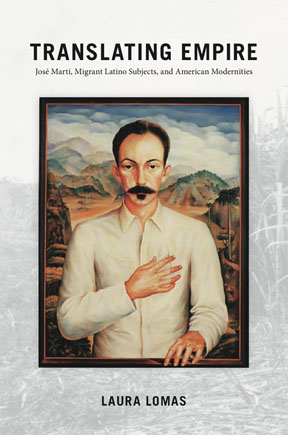









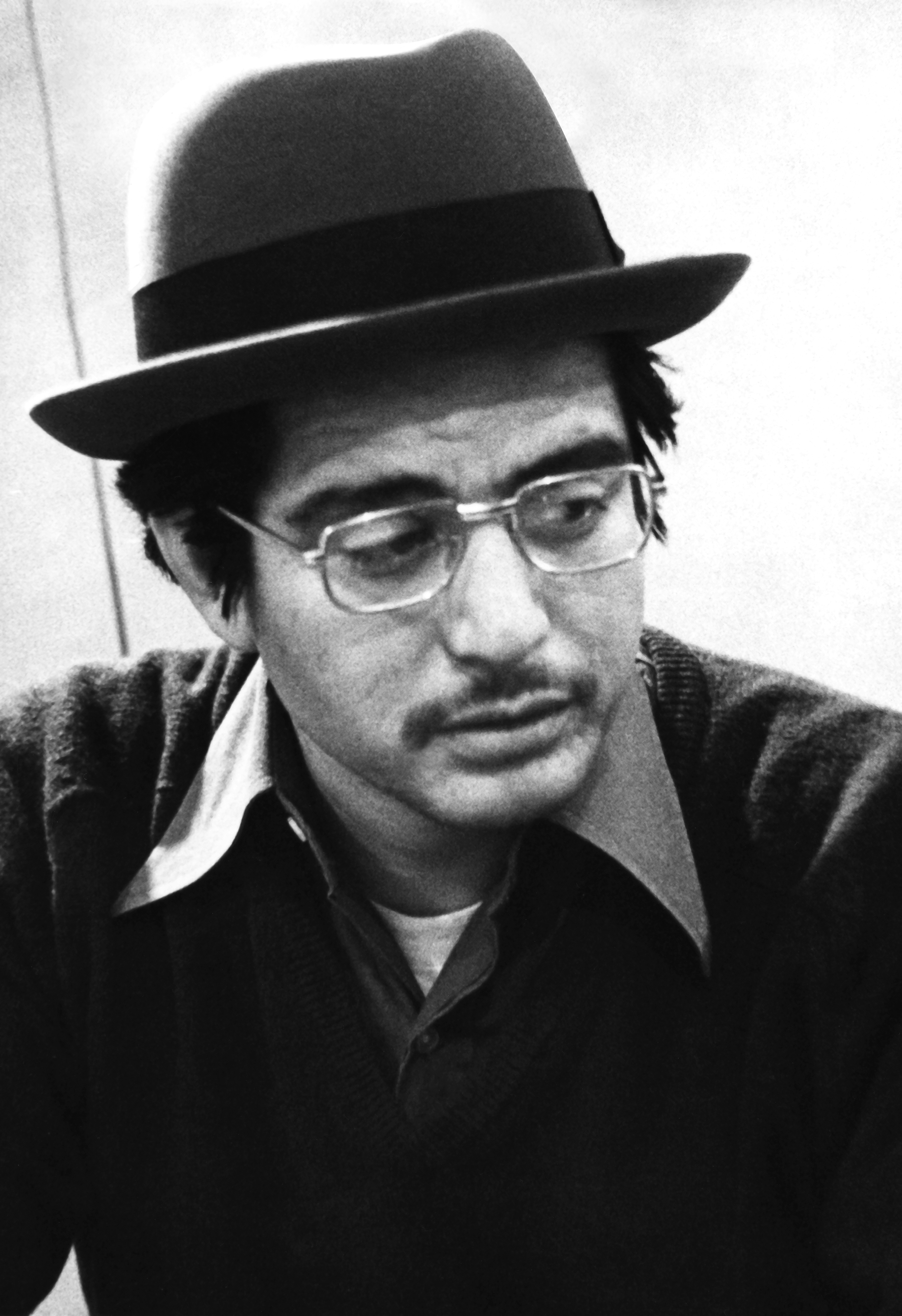
















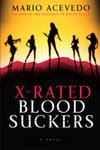
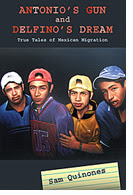

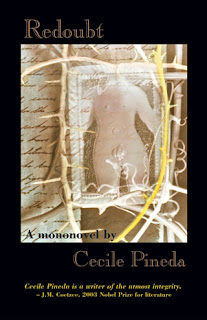


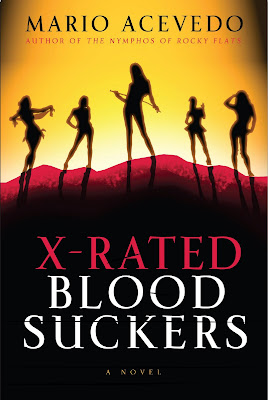
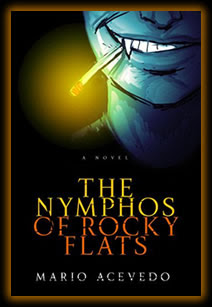
Rudy - yeah, viejo, you missed a couple of good events; you need to get out more often. Mario's comic (eventually a graphic novel) is phat, action-driven, and entertaining; and the art matches up well, in fact, extremely well. And Donaldo's piece is right on - it should be included in the Facebook poetry project "Poets Responding to SB1070"; you might let him know about that. I think your kids are gonna miss you.
awesome posts-all the way through! great energy :) and I LOOOVE that second cover-que si quema?!
and like Manuel said, that poem totally belongs in PRSB1070!
that second cover definitely. but then, i'm a 1950s kid so maybe my taste is dated. ni modo. the first one is cheesy. and ditto manuel's comment that donaldo needs to send that to facebook
Ramos, when you doing the COMPLEAT review of Cobra?
Missing 2 great events is part of the price teachers pay.
Hopefully, Donaldo will check out yous guys recommendation about Facebook.
Some of my kids already started crying. Some moms, too.
Me, I'm too macho; I'll wait til the end.
RudyG